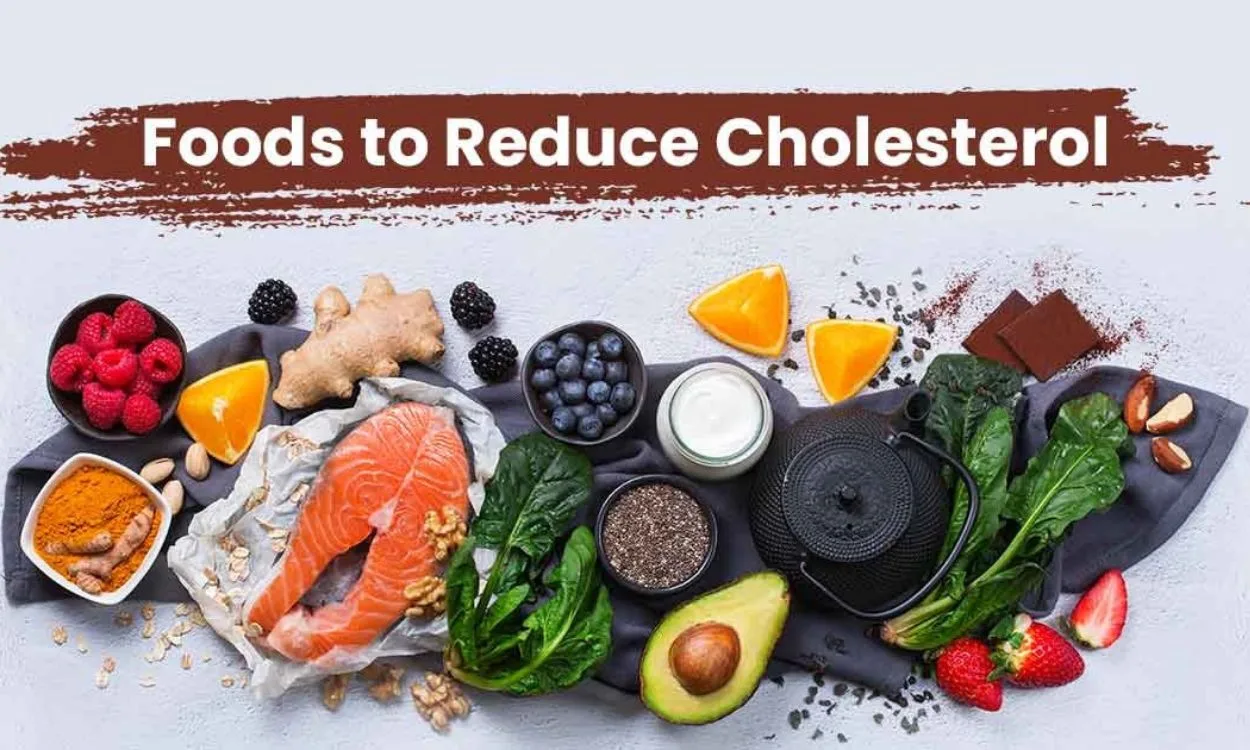Can Certain Foods Lower Cholesterol Naturally?
Introduction: Understanding Cholesterol
Cholesterol is a waxy substance found in your blood that is necessary for the body to function properly. However, high levels of cholesterol can increase the risk of heart disease and other health problems. The two types of cholesterol are low-density lipoprotein (LDL) and high-density lipoprotein (HDL). LDL cholesterol is often referred to as “bad” cholesterol because it can build up in the arteries and lead to blockages, while HDL cholesterol is known as “good” cholesterol because it helps remove excess cholesterol from the bloodstream.
Importance of Lowering Cholesterol
Lowering cholesterol levels, particularly LDL cholesterol, is crucial for maintaining good heart health and reducing the risk of heart disease. While medications are available to help manage cholesterol, making lifestyle changes, including adopting a healthy diet, can also play a significant role in naturally lowering cholesterol levels.
Foods that Can Help Lower Cholesterol
- Fruits and Vegetables: Including a variety of fruits and vegetables in your diet is essential for maintaining healthy cholesterol levels. They are rich in fiber, antioxidants, and other nutrients that can help lower LDL cholesterol. Some beneficial options include apples, oranges, berries, leafy greens, broccoli, and carrots. Aim for at least five servings of fruits and vegetables per day.
- Whole Grains: Choosing whole grains over refined grains can have a positive impact on cholesterol levels. Whole grains, such as oats, brown rice, quinoa, and whole wheat bread, contain soluble fiber that helps lower LDL cholesterol. Additionally, they provide essential nutrients and promote overall heart health.
- Legumes: Legumes, such as beans, lentils, and chickpeas, are a great source of plant-based protein and fiber. They can help reduce LDL cholesterol levels and improve heart health. Incorporating legumes into your diet can be as simple as adding them to soups, salads, or side dishes.
- Nuts and Seeds: Nuts and seeds, including almonds, walnuts, chia seeds, and flaxseeds, are rich in healthy fats, fiber, and plant sterols. These components have been shown to lower LDL cholesterol levels. However, it’s important to consume them in moderation due to their high calorie content.
- Fatty Fish: Fatty fish, such as salmon, mackerel, sardines, and trout, are excellent sources of omega-3 fatty acids. Omega-3 fatty acids have been found to increase HDL cholesterol levels and reduce triglycerides, a type of fat in the blood. Aim to include fatty fish in your diet at least twice a week.
- Plant Sterols and Stanols: Plant sterols and stanols are substances naturally found in plants that can help lower LDL cholesterol levels. They work by blocking the absorption of cholesterol in the intestines. Foods fortified with plant sterols and stanols, such as certain margarines, yogurt, and orange juice, can be beneficial for lowering cholesterol.
- Olive Oil: Olive oil is rich in monounsaturated fats, which can help improve cholesterol levels. It is a healthier alternative to saturated and trans fats commonly found in processed and fried foods. Incorporating olive oil into your cooking and salad dressings can have a positive impact on your cholesterol levels.
Conclusion
Lowering cholesterol levels is crucial for maintaining good heart health and reducing the risk of cardiovascular diseases. While medications are available, making dietary changes can also play a significant role in naturally lowering cholesterol levels. Including a variety of fruits, vegetables, whole grains, legumes, nuts, seeds, fatty fish, plant sterols, and olive oil in your diet can have a positive impact on cholesterol levels. Additionally, adopting a healthy lifestyle, such as regular exercise and weight management, can further support your efforts to lower cholesterol naturally.
Discover Fitpaa and Achieve Your Health and Fitness Goals
If you are looking for a holistic approach to achieve your health and fitness goals, Fitpaa is here to help. Fitpaa is an AI-driven metabolism monitoring and management technology that can provide you with the guidance and support you need.
With Fitpaa, you can:
- Take a Metabolism Assessment to identify the root cause of your health condition and optimize your metabolism.
- Get your personalized Fitpaa Capsule, consisting of medical therapy, medical exercise therapy, medical nutrition therapy, and cognitive behavior therapy, to help you achieve your health and fitness goals.
- Follow your Fitpaa Capsule using the Fitpaa mobile app, which provides a virtual workout trainer, diet tracker, performance tracking, and real-time guidance to keep you on track.
- Benefit from the expertise of fitness coaches, nutritionists, and doctors who will regularly review your progress and make necessary adjustments to your Fitpaa Capsule.
Fitpaa is dedicated to helping you achieve your health and fitness goals with guaranteed results. Download the Fitpaa app now and experience the joy of getting fit and excelling in life. Your well-being is our mission!









